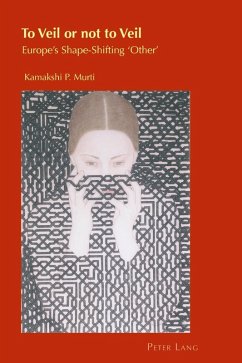Immigration has become a contentious issue in Europe in recent decades, with immigrants being accused of resisting integration and threatening the secular fabric of nationhood. The most extreme form of this unease has invented and demonized an Islamic 'other' within Europe. This book poses central questions about this global staging of difference. How has such anxiety increased exponentially since 9/11? Why has the Muslim veil been singled out as a metaphor in debates about citizenship? Lastly, and most fundamentally, who sets the criteria for constructing the ideal citizen?
This study explores the issue of gender and immigration in the national contexts of Germany and France, where the largest minority populations are from Turkey and North Africa, respectively. The author analyzes fictional works by the Turkish-German writers Emine Sevgi Özdamar and Zafer Senocak and by Francophone writer Malika Mokeddem. All three deconstruct binary oppositions and envision an alternate third space that allows them to break out of the confines of organized religion. In the latter part of the book, the voices of young Muslim women are foregrounded through interviews. The concluding chapter on the pedagogical tool Deliberative Dialogue suggests ways to navigate such contentious issues in the Humanities classroom.
This study explores the issue of gender and immigration in the national contexts of Germany and France, where the largest minority populations are from Turkey and North Africa, respectively. The author analyzes fictional works by the Turkish-German writers Emine Sevgi Özdamar and Zafer Senocak and by Francophone writer Malika Mokeddem. All three deconstruct binary oppositions and envision an alternate third space that allows them to break out of the confines of organized religion. In the latter part of the book, the voices of young Muslim women are foregrounded through interviews. The concluding chapter on the pedagogical tool Deliberative Dialogue suggests ways to navigate such contentious issues in the Humanities classroom.
Dieser Download kann aus rechtlichen Gründen nur mit Rechnungsadresse in A, B, BG, CY, CZ, D, DK, EW, E, FIN, F, GR, HR, H, IRL, I, LT, L, LR, M, NL, PL, P, R, S, SLO, SK ausgeliefert werden.


